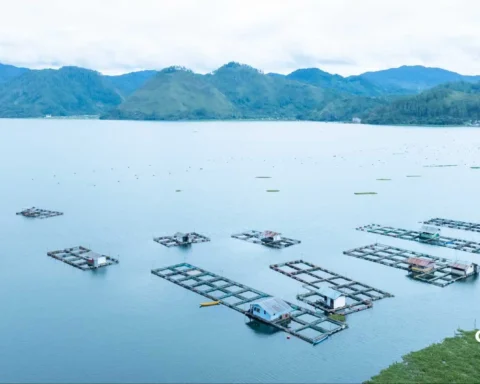Climate change refers to long-term shifts and alterations in temperature and weather patterns on Earth. Human activities, including burning fossil fuels, deforestation, and industrial activities, have accelerated climate change by increasing greenhouse gases like carbon dioxide, methane, and nitrous oxide. This leads to global warming, rising sea levels, extreme weather events, and ecosystem disruptions.
Climate change poses risks to biodiversity, agriculture, water resources, and human health. Addressing climate change requires global efforts to reduce emissions, transition to renewable energy, and promote sustainable practices. Governments, businesses, and individuals must take responsibility for mitigating its impacts to protect the planet’s future.
Table of Contents
Africa faces significant threats from climate change despite contributing minimally to global emissions. The continent experiences profound impacts, affecting agriculture, water resources, and public health. This piece delves into the issues while exploring potential pathways for adaptation and building resilience.
Image by author: A conceptual framework that integrates threats, context, and the factors that must be considered if Africa’s biodiversity is to persist and be effectively protected/maintained.
Current Climate Trends in Africa
Africa has seen a significant increase in temperature since 1901, with projections suggesting that many regions could reach 2°C by the end of the century. This trend has led to more frequent heatwaves and changes in precipitation patterns, with some areas experiencing decreasing rainfall and others experiencing unpredictable increases, leading to severe droughts and floods.
How Global Warming Threatens Human Security in Africa – Africa Center
The chart lists African countries most vulnerable to climate change, ranked by their vulnerability scores. The countries are ranked from 181 to 165, with the Central African Republic (CAR) being the most vulnerable, with a score of 29.0. The chart also indicates whether each country is experiencing conflict. Countries like CAR, Sudan/South Sudan, Somalia, and Burundi are marked by conflict. The scores range from 29.0 to 36.5, with Malawi and the Republic of Congo having the highest scores among the listed countries. This chart highlights the intersection of climate vulnerability and conflict in Africa.
Sources:
Wannes Hubau, “Asynchronous Carbon Sink Saturation in African and Amazonian Tropical Forests,” Nature, March 4, 2020.
Magda Lovei, “Climate Impacts on African Fisheries: The Imperative to Understand and Act.” World Bank Blogs, November 11, 2017.
Africa’s Temperature Anomalies
The Intergovernmental Panel on Climate Change (IPCC) highlights Africa’s vulnerability to climate change impacts above 1.5°C, exacerbated by its reliance on climate-sensitive sectors like agriculture, which are crucial for livelihoods and economic stability.
Key Climate Impacts
Natural disasters in sub-Saharan Africa, 1970-2020
Agricultural Challenges
Climate change has led to a 34% decline in agricultural productivity since 1961, primarily due to changing rainfall patterns and rising temperatures. Rain-fed agriculture faced up to 50% reductions by 2020 in certain regions, highlighting the vulnerability of the continent’s agricultural systems to climate variability.

Water Scarcity
Sub-Saharan Africa faces water scarcity. By 2020, 75-250 million people faced shortages due to changing rainfall patterns and increasing evaporation rates. The region remains critically water-stressed, with millions lacking basic drinking water services. The World Bank highlighted the urgent need for sustainable water management strategies in the region.
Health Risks
Climate change is linked to the spread of diseases like malaria and dengue fever due to changing weather patterns, which can also lead to injuries and fatalities, further straining healthcare systems already under pressure from other socio-economic factors.
Economic values to livelihoods from nature in Africa
Biodiversity Loss
Climate change in Africa is causing biodiversity loss, disrupting ecosystems through altered rainfall patterns and temperature increases, resulting in habitat loss for numerous species and affecting wildlife and communities reliant on natural resources.
Projected impact of climate change on sub-Saharan Africa’s GDP
Economic Impacts
Climate change has severe economic impacts, with the African Development Bank estimating annual adaptation costs of $50 billion by 2050 and projected food imports of $110 billion by 2025 due to declining local agricultural production.
Migration Trends
Migration trends in Africa due to climate change
Climate change is causing significant migration trends in Africa. Rising heat, droughts, and irregular rainfall damage agricultural and water supplies, forcing the rural population to relocate to cities. Coastal regions face sea level rise and flooding, displacing thousands. Cross-border migrations are increasing, exacerbating regional tensions and humanitarian crises. Addressing these challenges requires targeted policies, international cooperation, and sustainable development.

Vulnerabilities Specific to Africa
Many causes exacerbate Africa’s susceptibility to climate change.
Geographic Diversity: The impacts of climate change differ across Africa’s diverse landscapes, with desert regions experiencing extreme droughts while other areas face devastating floods.
Economic Dependence on Agriculture: A significant portion of the population relies on agriculture for livelihood, and any adverse crop yields can lead to food insecurity and increased poverty levels.
Limited Adaptive Capacity: Many African countries lack the financial and technological resources to implement effective adaptation strategies, hindering their ability to mitigate climate change impacts.
Political Instability: Political instability in certain regions heightens vulnerabilities as governments struggle to address the dual challenges of climate change and socio-economic pressures.
Pathways for Adaptation and Resilience
Despite these challenges, there are opportunities for Africa to build resilience against climate change:
Investment in Climate-Resilient Agriculture: Proper development of drought-resilient crops and enhanced irrigation techniques can increase food security.
Strengthening Water Management Systems: Implementing integrated water resource management strategies can enhance water use and help improve access across various sectors.
Enhancing Health Systems: Strengthening healthcare infrastructure can enhance resilience against climate change health risks, including improved surveillance systems for disease outbreaks linked to climatic conditions.
Regional Cooperation: Regional cooperation among African nations can effectively address climate change challenges by sharing resources and knowledge.
Leveraging International Support: African countries are encouraged to continue collaborating with international partners for financial and technical assistance in implementing their Nationally Determined Contributions (NDC) under the Paris Agreement.

Conclusion
Despite its minimal contribution to global emissions, climate change is a significant challenge for Africa. Its impacts include declining agricultural productivity, water scarcity, rising sea levels, and extreme weather events, disrupting livelihoods and exacerbating socio-economic vulnerabilities. Africa’s population heavily relies on climate-sensitive sectors, making it disproportionately affected.
Africa faces challenges due to limited financial and technological capacity, leading to food insecurity, displacement, and health crises. Political instability and underdeveloped infrastructure also hinder climate resilience efforts. However, transformative solutions include investments in renewable energy, climate-resilient agriculture, and sustainable water management. International collaboration, particularly from high-emission nations, is crucial for Africa to meet climate goals and achieve sustainable development.
Africa’s response to climate change will shape the continent and serve as a critical component of the global effort to mitigate the climate crisis. By prioritizing resilience and sustainability, Africa can navigate these challenges and unlock opportunities for long-term growth and stability.









